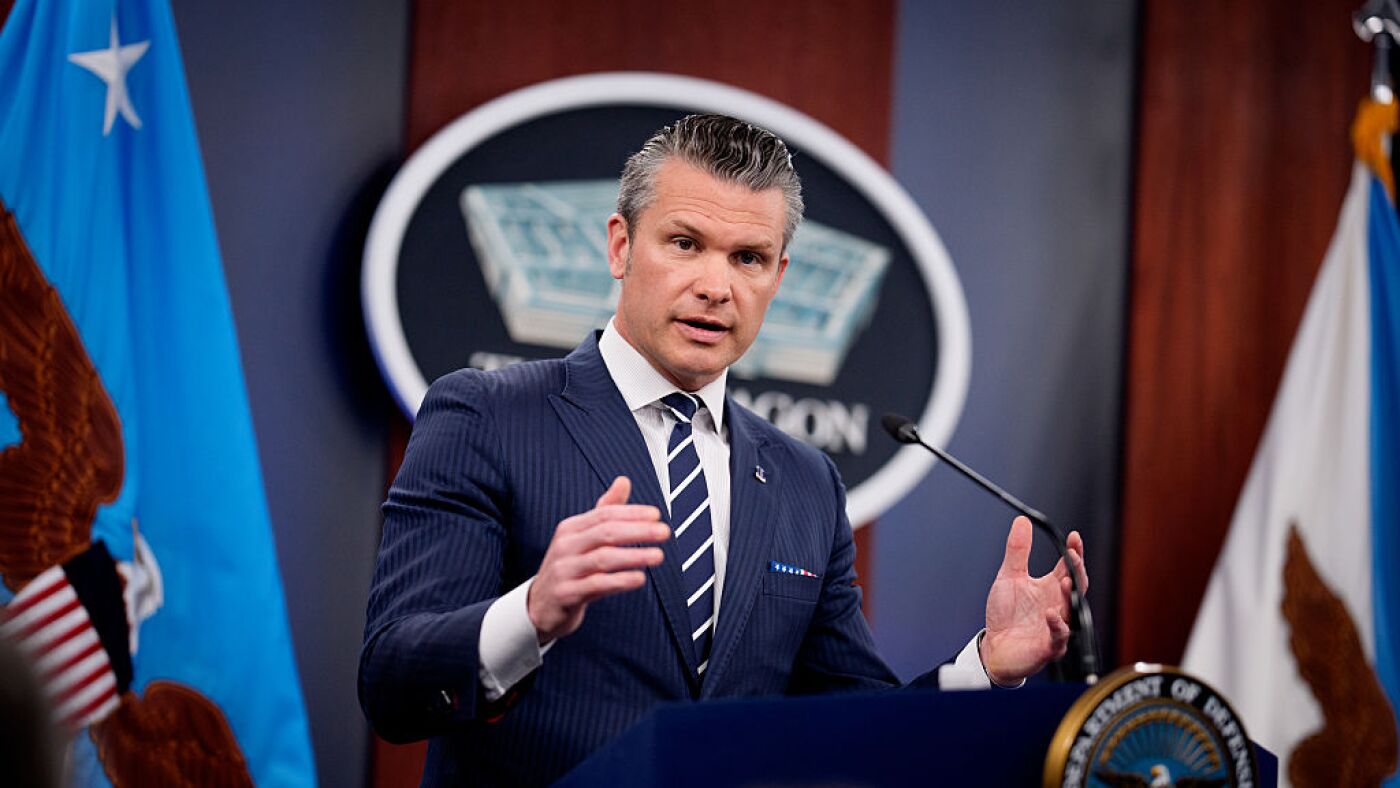Secretary of Defense Pete Hegseth reposted the video profiling Christian Nationalist Pastor Doug Wilson, who opposes same-sex marriage.
Why it matters
- The sharing of religious and political views by high-ranking officials can influence public opinion and policy decisions.
- Pastor Doug Wilson's stance on same-sex marriage reflects broader tensions within American society regarding LGBTQ+ rights.
- This incident underscores the ongoing intersection of religion and politics in contemporary discourse.
In a move that has drawn significant attention, Secretary of Defense Pete Hegseth recently shared a video highlighting the views of Christian Nationalist Pastor Doug Wilson. Known for his strong opposition to same-sex marriage, Wilson's perspectives have garnered both support and criticism, making his endorsement by a prominent government figure all the more noteworthy.
The video, which Hegseth reposted, presents Wilson speaking on various topics, including his theological beliefs and political ideologies. Wilson, who leads a church in Moscow, Idaho, has made headlines for his controversial views on marriage, arguing that traditional definitions should be upheld in society. This aligns with a broader movement among certain evangelical groups that seek to influence legislation and public policy in accordance with their interpretation of Christian doctrine.
Critics of Wilson's views argue that such ideologies contribute to discrimination against LGBTQ+ individuals and hinder the progress of civil rights. The juxtaposition of Hegseth's platform as Defense Secretary with Wilson's rigid stance raises questions about the role of faith in governance and the potential ramifications of such endorsements.
Hegseth, a prominent figure in conservative circles, has previously been vocal about his beliefs and has utilized social media to amplify voices that resonate with his ideologies. His reposting of Wilson's video signals a willingness to align with and promote views that have historically polarized American society. This incident invites further scrutiny into how personal beliefs of public officials may affect their professional responsibilities, particularly in a diverse nation where the separation of church and state is a foundational principle.
Supporters of Wilson argue that his views represent a legitimate interpretation of Christian teachings and that they should be included in public discourse. They contend that religious beliefs should not be sidelined in political discussions, asserting that faith can guide ethical decision-making in governance. This perspective, however, is often met with resistance from advocates for LGBTQ+ rights, who see such views as regressive and harmful.
As debates around marriage equality continue to evolve, the implications of Hegseth's actions may resonate beyond the immediate controversy. Advocates for LGBTQ+ rights have expressed concern that high-profile endorsements of anti-LGBTQ+ rhetoric could embolden similar sentiments across the country, potentially impacting future legislation and societal norms.
Moreover, this incident highlights the growing intersection of religion and politics in America, as figures like Hegseth leverage their platforms to advance particular ideological agendas. The implications of such actions are significant, as they may influence younger generations' perceptions of both faith and governance.
In a broader context, the sharing of Wilson's views by someone in Hegseth's position raises important questions about the extent to which personal convictions should inform public policy. It also brings to light the ongoing struggle for LGBTQ+ rights in a landscape where religious beliefs can significantly shape political discourse.
As the conversation surrounding this incident unfolds, it will be crucial to monitor how it influences public opinion and potential policy changes. The implications of Hegseth endorsing Wilson's views may extend beyond just the defense sector, impacting a range of political and social issues in the coming months.
Ultimately, the intersection of personal belief systems and public office continues to be a contentious topic in American society. The fallout from this controversy may serve as a barometer for the state of religious influence in politics and the ongoing fight for equality in various facets of life.











